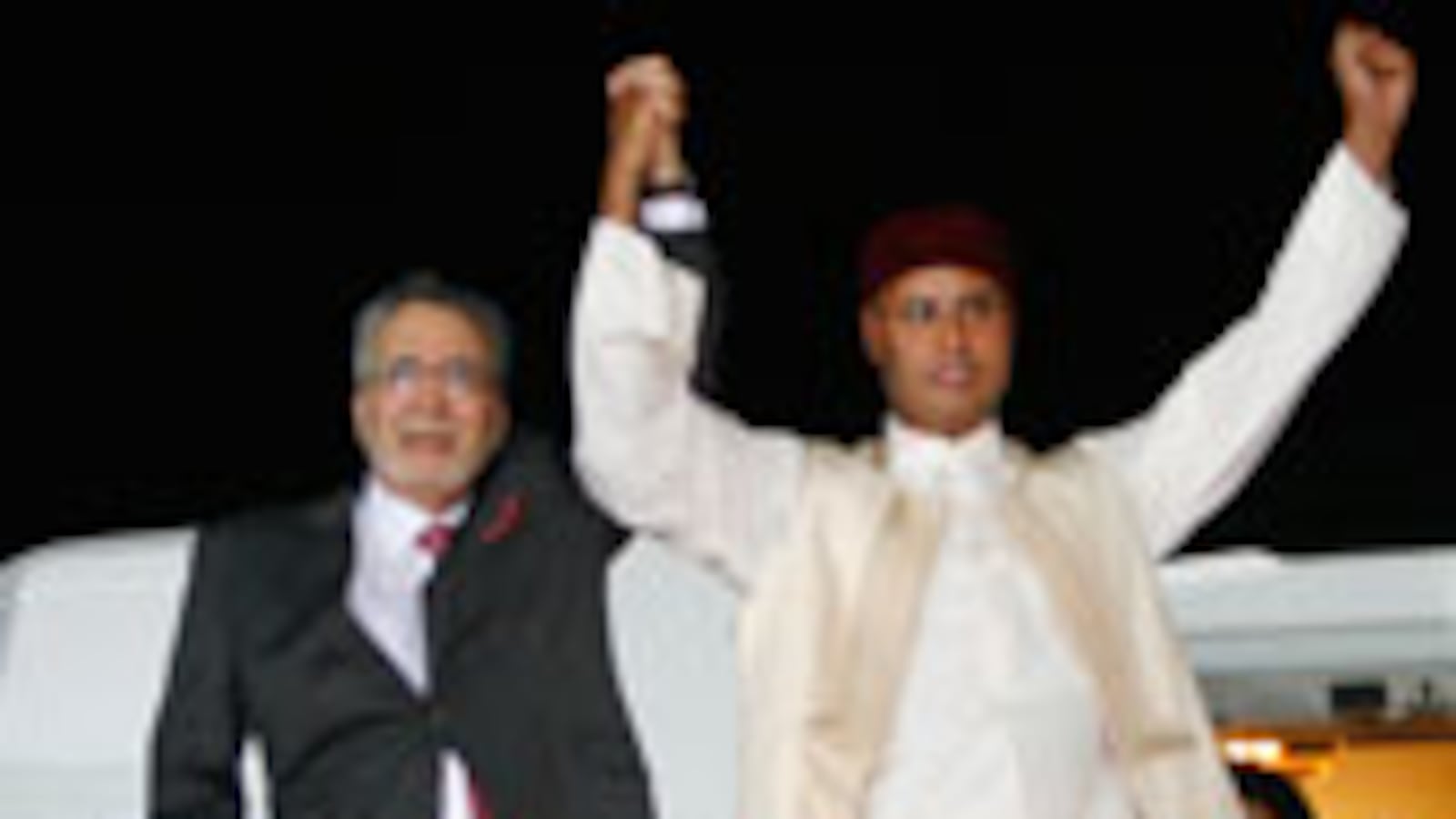
I will never forget the scream I heard from my mother in the other room in January, 1989: “My son will NOT die in vain! Do you hear me? He will NOT!” At that moment, she was talking to a U.S. senator about how the government planned to respond to the Lockerbie bombing of Pan Am 103. Two weeks before, my older brother had been murdered on his way home for Christmas.
Like many of our Irish ancestors, we Flynns like a fight, and my mother was going to make this the fight of her life. Although I was a naïve 19-year-old college student, her passion swept me up into the cause.
Almost immediately, we began planning demonstrations, publishing articles, shouting on rooftops —whatever we could do. Through the dedication and commitment of countless family members, we managed to honor our loved ones through these efforts.
Little did we know, we would be betrayed. Out of the blue, I got a phone call, telling me that Megrahi was being considered for release.
During the next two decades, we lobbied to hold responsible the companies that could have prevented the attack: Pan Am was convicted of gross negligence and willful misconduct. My mother served on both presidential commissions that investigated the causes of the bombing and improved airline security, and I helped her as a researcher. We lobbied Congress to enact the Iran Libya Sanctions Act, which ultimately put enough pressure on Libya to hand over the indicted Libyan agents who perpetrated the crime. And, we sat in that courtroom listening to months of damning—and conclusive—evidence. Eventually, Abdel Baset al Megrahi was convicted and sentenced to life in prison. And although he would be the only man to pay for the atrocity, we felt in a small way that some justice had been served.
Little did we know, we would be betrayed. Out of the blue, I got a phone call from the British Embassy, telling me that Megrahi was being considered for release. Days later, we found ourselves in a surreal argument via videoconference with the minister of justice in Scotland. We thought we made inarguable points: “You cannot release an unrepentant mass murder for any reason, especially to the people and government that paid him to do it,” I told him. “Releasing him would make a mockery of the justice system and embolden terrorists around the world. It doesn’t matter if he is sick. He can get palliative care in prison like the dozens of people that die of natural causes in Scottish prisons every year.”
How could they not know that Megrahi would receive a hero’s welcome in Libya? How could they not suspect that he might miraculously be cured and live for years?
When Megrahi was released days later, this blatant act of betrayal robbed us of that one shred of justice. It made us feel that our decades of effort were worth nothing. As we have now learned, the Scots did it for the least surprising reason: money. The deal seemed to have been a perfect storm of ulterior motives: BP was directly lobbying the U.K. government to get Megrahi released so they could win oil contracts while, at the same time, Scotland’s first minister, Alex Salmond, was traveling around the Middle East raising capital from sovereign wealth funds there. One of them, the Qatar Investment Authority, directly stated that it would “not be good for Megrahi to die in prison.” This was two months before we met with the Scottish minister.
Since Megrahi’s release, we have demanded to see proof that he was to die in three months. It seemed all too convenient and, as we now know, the reason given was inherently fraudulent. The Scottish justice department ignored specific medical evidence about life expectancy. In fact, not ONE cancer specialist consulted would give the three-month death sentence required for compassionate release.
So, it seems I am not done pursuing justice for my older brother as people continue to dishonor the 270 victims. Our mission now is to hold these charlatans responsible. The Scottish ministers should be forced to resign, and then tried on corruption charges. Megrahi should be returned to prison.
Daniel Webster said justice is the ligament which holds civilized beings and civilized nations together. Through the years, I often thought: Am I really just seeking revenge, veiled in a cloak called justice? But I don’t think so. Justice—in and of itself—is worthy of relentless pursuit. If we let convicted mass murderers out of prison, or allow our public servants to sell prison releases, then we tear that ligament apart, and threaten the very fabric of civilized society itself.
Brian P. Flynn is a founding partner of Schlossberg:Flynn, a business advisory and turnaround firm for emerging companies. A spokesperson for the victims of the Lockerbie bombing, Brian has also written articles for The Wall Street Journal, The Guardian, and many others.






